Variety’s Showrunners Sitdown: ‘Hacks’ Creators Talk Deborah and Ava’s ‘Love Story,’ That Shocking Final Scene and Casting Deidre Hall
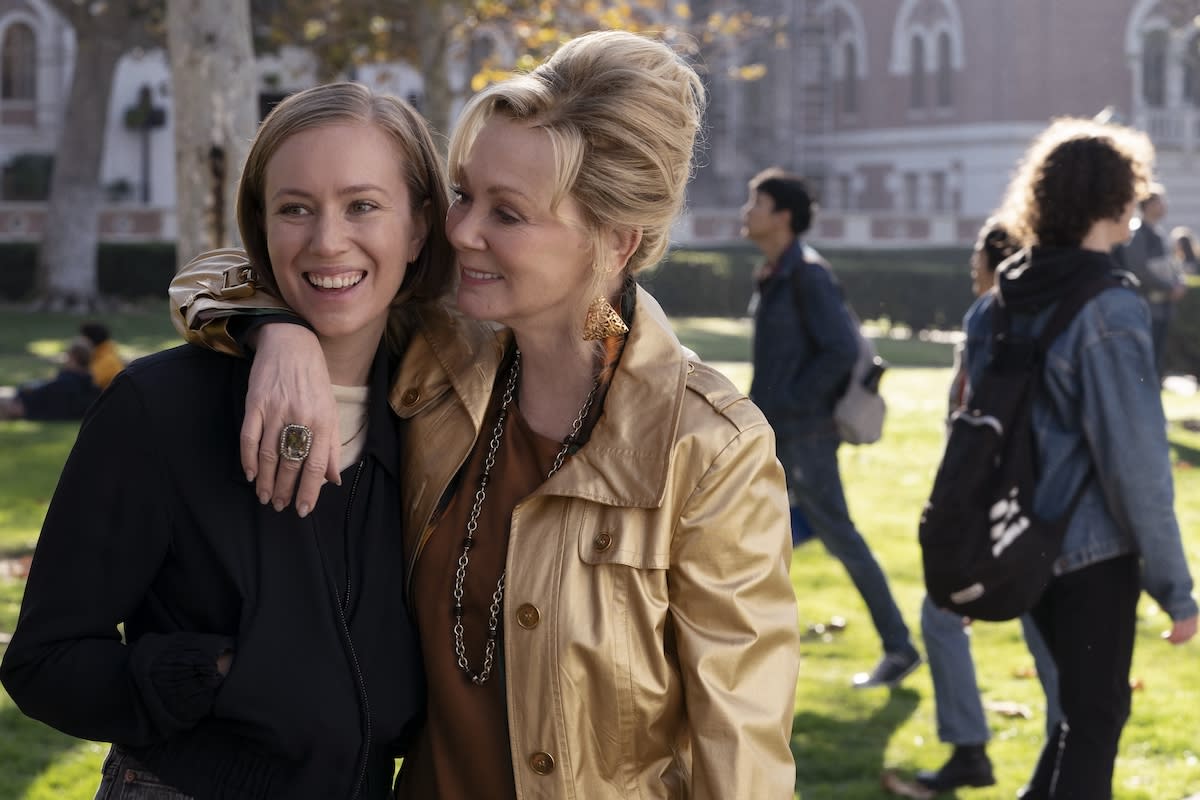
When Season 3 of “Hacks” premiered at the beginning of May, reaching that moment had been hard won.
Nearly two years had passed since its second season concluded; real life simply got in the way. The writers strike and the actors strikes caused delays, but even before that — and on a more serious, human note — the show’s two-time Emmy-winning star Jean Smart had emergency heart surgery.
More from Variety
Nevertheless, she persisted. “Hacks” — the creation of Jen Statsky, Lucia Aniello and Paul W. Downs — roared back for its third season, perhaps its best yet.
The season returned with a time jump, with legendary comedian Deborah Vance (Smart) basking in the triumphant success of the deep, thoughtful and hilarious stand-up special she created with her partner in comedy, Ava Daniels (Hannah Einbinder). Deborah, however, is never one to stay content, and decides to go after a soon-to-be vacant late-night talk show hosting gig, one that had been taken away from her decades earlier.
To achieve that goal, Deborah brings Hannah — whom she’d fired in order to set her free — back into her life, with her managers Jimmy (Downs) and Kayla (Meg Stalter) trying to help her cause.
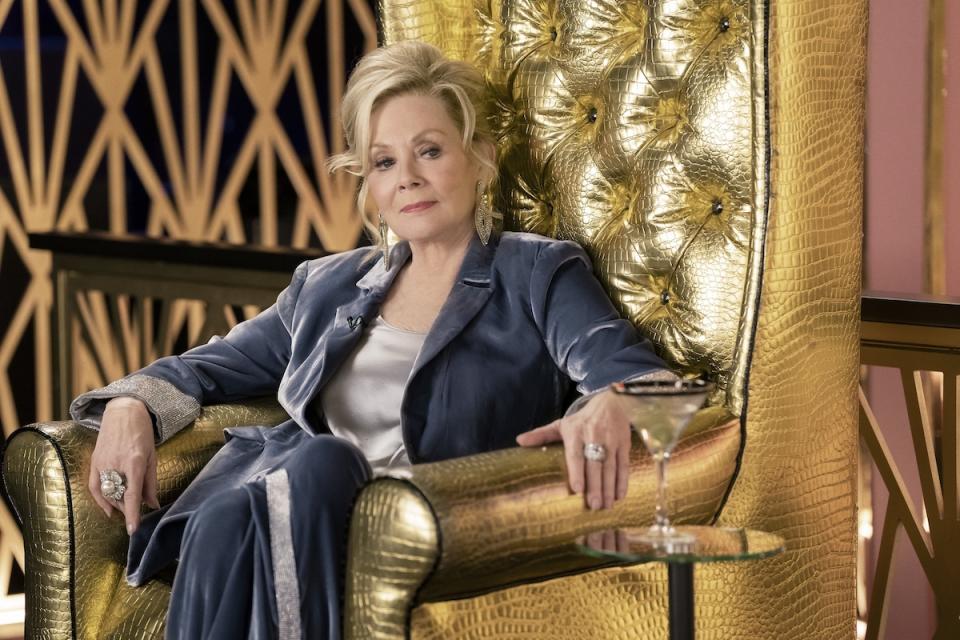
And Deborah gets the job! But since she’s never one to allow herself unmitigated joy, and remains governed by her own fear and past hurts, Deborah offers — and then retracts — the talk show’s head writer job to Ava.
Yet Ava has learned much from her boss. She’s come too far with Deborah, and loves their work too much. Ava wants what she wants, and knows how to get it: blackmail, in this case, by threatening to reveal that Deborah, when she thought she’d lost the late night gig, slept with Bob Lipka (Tony Goldwyn), the CEO of the company that owns the network. In the final moments of the Season 3 finale, Ava has triumphed over Deborah.
Downs, Statsky and Aniello discussed all of these things — and more! — for Showrunners Sitdown With Kate Aurthur presented by FX.
I wanted to start at the very end of the finale. Did you begin writing Season 3 knowing that at the very end, Ava would blackmail Deborah to get the head writer job?
Lucia Aniello: We had to sleep every night knowing that was going to happen.
Jen Statsky: Some sleepless nights.
Paul W. Downs: I was going to say we tossed, we turned, but we knew it had to happen.
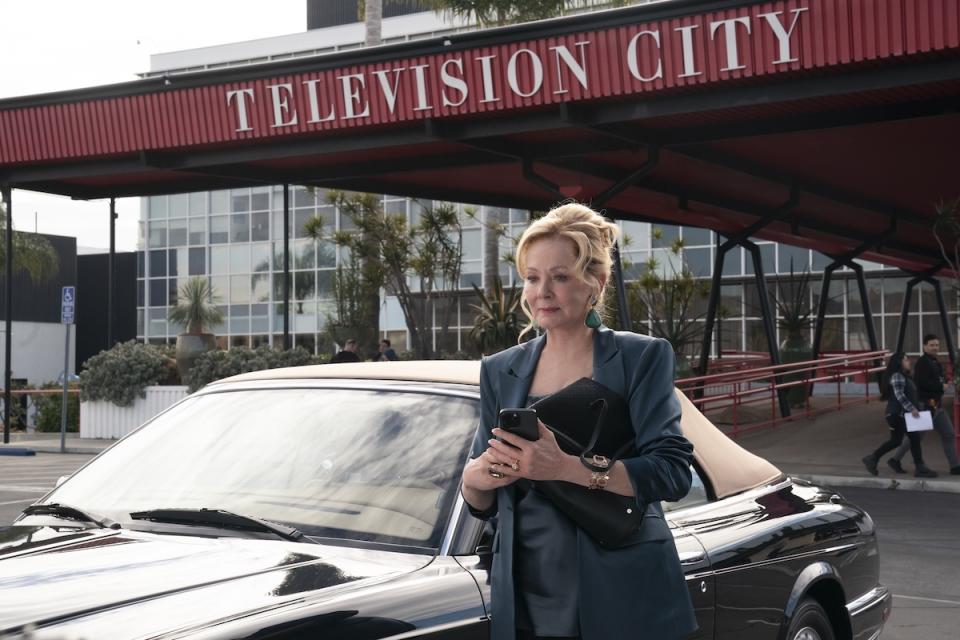
Statsky: But yeah, when we start a season, we have a tentpoles of where we’re going, and certainly always it’s most important to know what the end is, so you know what you’re building towards. So we always knew that that’s what it would be.
Aniello: Did you see it coming?
No! No. Where do you feel like they are in that final moment when they’re staring at each other?
Aniello: I think there’s a lot of feelings. I think for Ava, I think she’s surprisingly comfortable with it. I think she feels like it’s her coming into her — not final form, but for her to realize, I think the potential that maybe Deborah always saw in her, and whether or not that fulfilling that potential is good for her long-term or not, I think that is one of the bigger questions that we’ll be exploring. As for Deborah, I think she’s really mad, and a little bit proud.
Downs: But also, a little bit — I mean, she hires her because she’s a worthy opponent, and she’s not backing down. Ava keeps sort of leveling up. Also, Ava thinks it’s benevolent. She’s like, “I am doing this for your own good.” I think in that way, I think that’s part of the reason why Ava is very comfortable in doing it. And she knows she needs to.
Statsky: Yeah, we end Season 3, now they are facing off, and they are at a point in their relationship they’ve never quite been at before, where they’re both so mad and angry at each other — and there’s been this betrayal. And yet, they are handcuffed together, having to do the greatest challenge of both of their lives, professionally. So now it’s like, how can they make this work while at being at odds with each other personally?
Were you laying the groundwork for this massive power reversal?
Downs: We tried to keep it in mind, not just in terms of their dynamic, but also in terms of what we did visually with the show. I mean, we opened the season on a statue of Julius Caesar following behind Deborah’s back. So it was always, we were leaving breadcrumbs for the people that watched three, four or five times.
Wait, what’s another breadcrumb?
Aniello: DJ, after the roast says to her mom, “You’re an addict just like me. Addicts always hurt the ones we love.” That was also a suggestion that Deborah in the end would retract the offer for the late-night head writer job.
Downs: In the penultimate episode, Ava is advocating for Deborah to apologize for a joke. She said, “You think that right and wrong is really clear, but it’s never that clear. And one day you’ll understand that.”
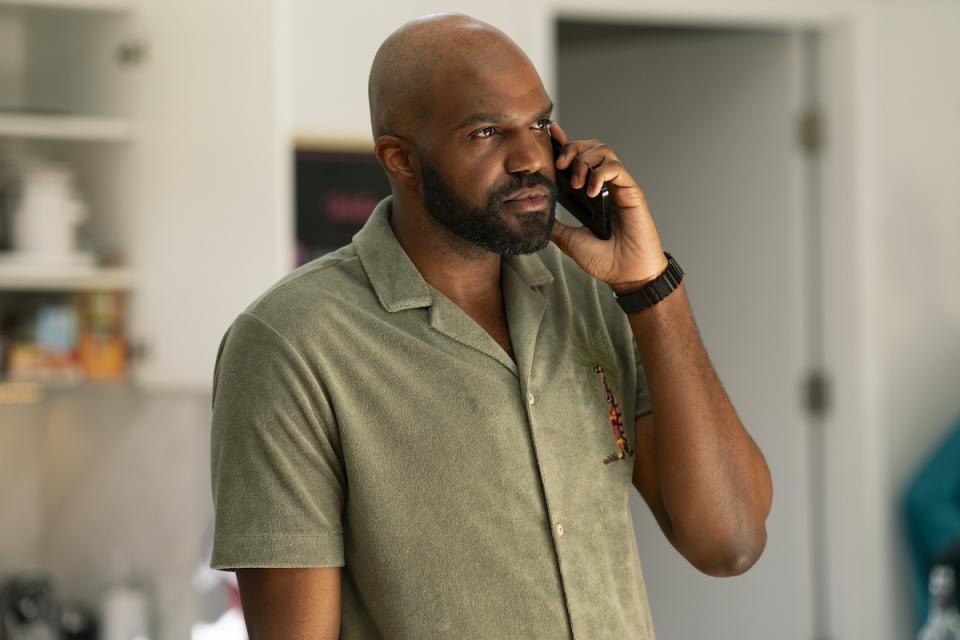
Marcus is about to quit. There was a scene where he actually gave notice to Deborah, but it’s not in the finale. Why did you not include that?
Downs: We try and keep the episodes as close to 30 minutes as we can. So sometimes it’s a length thing, but also for us, we felt like there were a lot of resolutions. I mean, Kathy, her sister and her, have sort of their big final conversation. Obviously, Ava and Deborah have this really big throwdown. Jimmy and Kayla sort of have a new level to their relationship. There were a lot of bows that we’re kind of wrapping things up, and so we thought that might be one fun kind of cliffhanger to leave for us to play with next season.
Aniello: Especially if the news of Marcus leaving comes on the heels of Ava’s, let’s say, blackmail betrayal. It felt like that would be landing on Deborah in a very different way. So it felt storytelling-wise, it would be something to be more interesting to explore a little farther down the road for Deborah.
So the door is closed on Kathy? We won’t —
Aniello: No — there’s no promise that she would come back, but we have talked about different ways that we potentially could bring her back, partly because we love J. Smith-Cameron. She’s just such a perfect Kathy for us. They were so naturally sibling-like in a really cool way. But also, even though I think Kathy feels very at peace with the relationship, doesn’t mean Deborah is, and it doesn’t mean DJ is, and doesn’t mean that other ties that bind them together couldn’t possibly bring them back.
Can you talk about casting J. Smith-Cameron?
Statsky: Yeah. I mean, we’re all such massive fans of hers, her entire body of work. And then of course, most recently, “Succession.” And they look similar — when you see it, you’re like, “Yes, this makes sense for siblings.” Then J. and Jean fell into this incredibly sibling-like dynamic right away on set. That was really special and fun to see. When they have that snowball fight, it feels like they’re sisters. So we were just so thrilled that J. wanted to do it. Then when she got there and on set and started doing scenes with Jean, it was just really, really special.
Aniello: You know we offered her the part at a party?
No!
Aniello: Twice, actually. Two different parties.
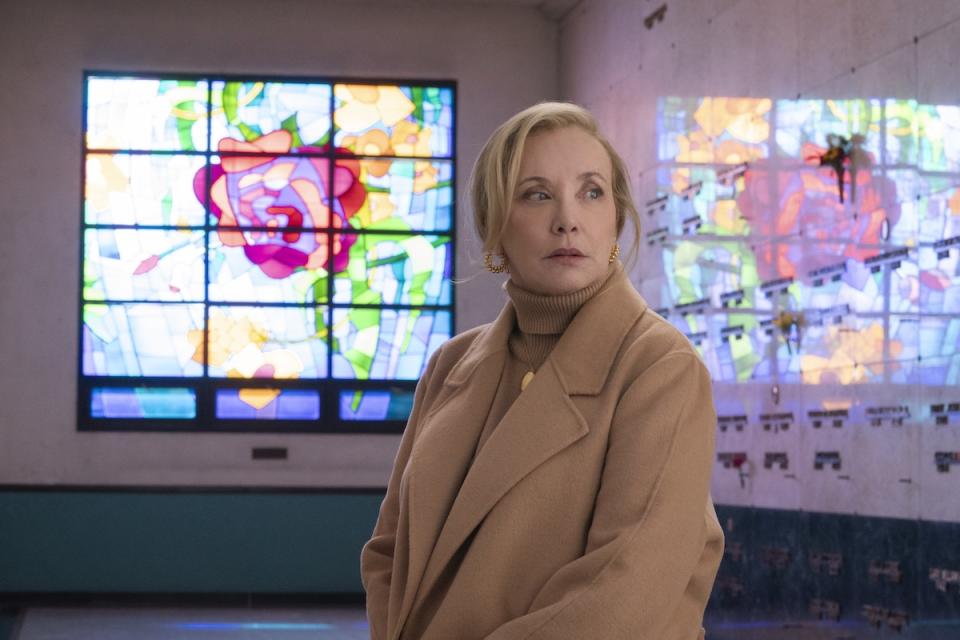
Say more!
Aniello: We were at an HBO Emmy’s party. We’d already been talking for a long time about how we wanted her to play it. So we just went up to her and we’re like, “Hey! We make this show ‘Hacks.’ Do you ever want to be on it?” And she’s like, “Sure.” And we’re like, “OK, you’d play this, this, this.” She’s like, “I’m kind of busy, honey.” Whatever. We’re like, “You know what? We’re going to see you in another party. We’re going to do it again.” Then we saw her at another party and we’re like, “It’s us again! We’re going to get a little more into the details here. Here’s the part. Here’s kind of the idea.” And she’s like, “OK!”
Downs: She was like, “I’m in.”
Statsky: “Still at a party, though.”
Aniello: But she said, “I’d love to do it.” It’s not the first time that we’ve done that, cast people —
Who else?
Statsky: Kathryn Newton in the finale.
Aniello: Who plays Kayla’s high school bully. Same thing at a party, we saw her.
Downs: We saw her, and she was really complimentary about the show, and we were like, “Well, there actually is a part you’d be great for. Would you ever do it?” And she was like, “Yeah. Sure, this is my agent.”
Aniello: We made the offer right there.
Beyond meeting people at parties and offering them the roles, what is your approach to guest casting? Because the show really excels in the guest cast. I mean, Deidre Hall as Jimmy’s mom. How did that happen?
Downs: Well, we were talking about Jimmy being sort of the son of this person who owned a management company, and his father probably had three or four marriages. We thought, “OK, Jimmy’s mom could be an actress. That makes sense.” Then somehow the muse visited the room and we were like, “What about Deidre Hall?” And everyone said, “Yes.”
Statsky: It just felt instantly right.
Downs: The discussion stopped. Of course, it’s really — it’s actually, I think, tricky to get people to play themselves because it’s sort of like they’re playing a version of themselves, but it’s not them. So that can be tricky. But I had a phone call with Deidre, and we talked about it and she said, “I’m in.” It was actually great because I think she really likes comedy and obviously, hasn’t done a ton of comedy.
Aniello: She was so great.
Downs: She was really great.
Helen Hunt.
Downs: Christina Hendricks.
Aniello: Christopher Lloyd.
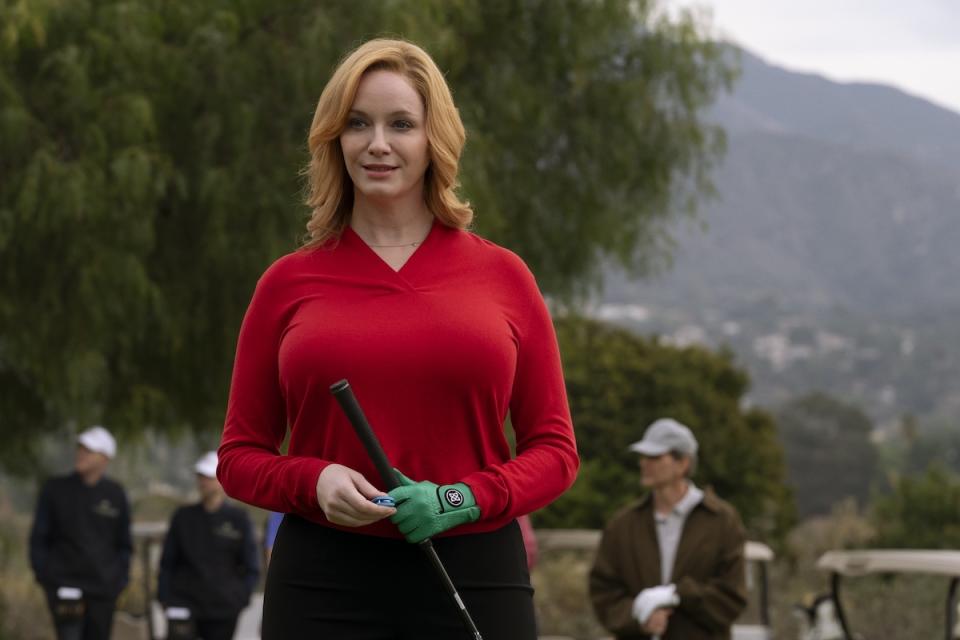
Christina Hendricks, as an evil lesbian Republican golfer!
Aniello: With a piss kink.
Downs: We all come to varying degrees from a performance background. We love writing for actors. We love actors and we often think of people in the role that helps us with their dialogue and sort of shaping the character. We’ve been lucky that a lot of those people have said yes to play the part.
Aniello: I mean, Laurie Metcalf from Season 2 as Weed is like — we could have done a whole spinoff. Honestly. So the only hard thing sometimes is being like, we know you are so talented that we could dedicate a whole episode to you, but this is the part. So we’re kind of like, “No worries if you don’t want to do it.” Whenever they are willing to do it, we are so grateful because it’s just a great spice to throw over an episode, a season, a series.
How aware are you guys of the fans who are absolutely positive that this is a love story between Deborah and Ava? Do you write to that at all?
Downs: We are aware. I get a comment, “Make them a couple!” on almost anything I post. We do see it.
Aniello: It actually makes me think that it’s really good that we had done the sex dream in Season 1 before the show came out. Because had we done it after that fanbase was feeling that way, then it would’ve seemed like we were pandering. But it’s always been in the DNA of the show since the beginning.
It is a love story, and none of us are going to argue with that. I mean, in terms of whether it’s an explicitly sexual story, I think it’s so easy to see a love story and be like, “Well, where’s the sex part?” Especially in a relationship that may be an older woman, a younger woman that hasn’t been explored as much on television. So we’re definitely aware of it, and it makes total sense in so many ways. That’s not necessarily how we initially pitched the story.
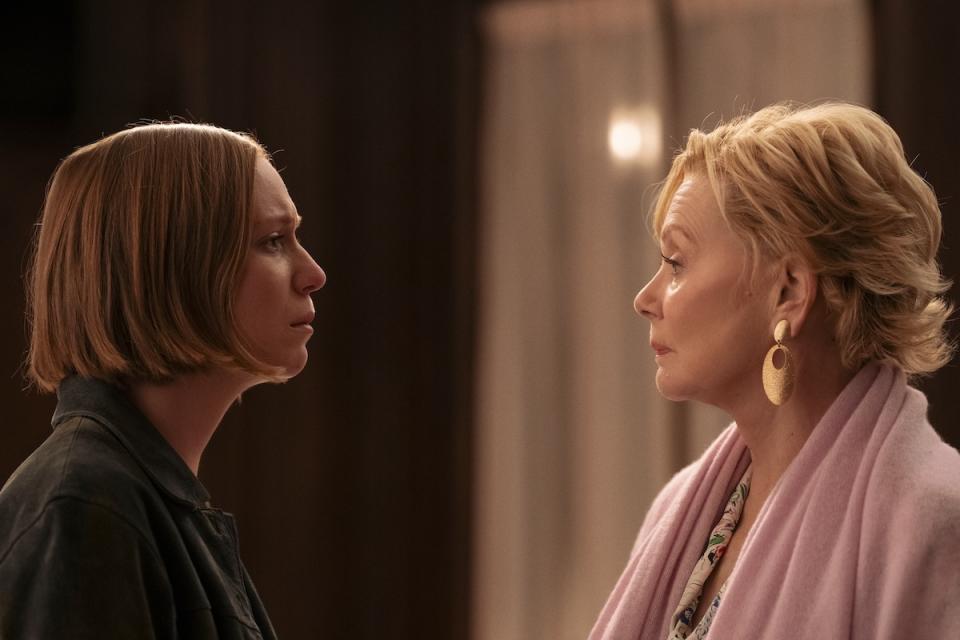
Statsky: I think it’s also we’ve been thinking about these characters and their dynamic and their relationship, and crafting it since 2015. We had four years before we pitched it of talking about what the dynamic is and what it was. I think it would be not a great idea to write towards what other people were saying anyway, but it’s already so, I think, in our brains and in our heads what their relationship is and where we want to go.
But that being said, the fact that people respond to it and want to write things and it’s inspiring, is incredibly amazing to us. And like Lucia said, it is a love story. It is a love story, period. And there’s all different ways love stories can look.
Backing up, the season was not easy to make. Jean Smart had a heart surgery. What was your experience of this?
Downs: I mean, we were very worried. But we’re all very close and so we tried to be as there for her as we could be. It’s so bizarre — my mom broke her ankle the same week that she went to Cedars, so I was there. So I was like, “Jean, I’m at Cedars.” I was with her for a good amount of time.
But she is so tough. I mean, Hannah has said this, but she is titanium. She was like, “Great, let’s do it, and then I’ll come back next week!” She was so concerned about the crew and about the show, and it was sort of like, “Well, let’s concentrate on your health and just worry about that.” But she is someone who’s so dedicated to her work, and also to her family — which is the cast and the crew. We all become very much a family. I think that really her biggest concern was the break we would have to all take, but everybody was there for her. And most of the crew, I would say, all of the crew, waited until she got back, didn’t take other jobs. They wanted to be there for her. So it was really a kind of powerful reunion.
Did the strikes end up being the break she needed and never would’ve taken to recover as well as she could?
Aniello: Yeah, I mean, I do think that she is somebody who is at this really incredible place in her career where she is being offered amazing movies and things in between shooting. I think part of her wants to take advantage of that, because they’re these really rich, delicious parts. But I think she also just had this kind of health scare. Yeah, I think you’re right that she probably wouldn’t have taken that time off. Even her rest isn’t true rest.
Statsky: She was out on the picket lines.
Downs: Yeah. She was with us.
Statsky: 98 degree-heat.
Aniello: No one is ever going to stop her.
Wow. And when the strikes ended, how far had you gotten?
Statsky: Halfway, a little more than half.
Aniello: We had shot about 40% before her health scare, another 5, 10%. And then, yeah, last 50 something.
So when did you actually finish production?
Downs: February?
Statsky: End of January 2024. On one of the last days of shooting, I looked, and we had been shooting season three for a full 420 days or something.
Downs: Not every day!
Statsky: Not every day. Not every day. Some strikes and breaks in between.
Downs: That would’ve been beautiful.
“Megalopolis.”
Aniello: You know what’s so funny is we shot the Vegas stuff at the very end. So the very first shot with the drone shot that gets caught and gone through, that was our very last shot that we shot of the whole season, and it was our first one in the episode.
Downs: And you know what? Actually, it was so crazy. The very first shot we did, coming back from the double strikes and Jean’s surgery was the last scene, with Ava and Deborah in “Bulletproof,” in the finale. That was the first thing we came back to, which is such an intense scene.
It was a bizarre way to start, but it honestly was really — I think it charged that scene.
Statsky: Nervous jitters tension.
In terms of the arc of the season, Deborah’s quest to get the late-night job, was that the plan from the start from years ago, that Season 3 would be about her trying to do this?
Aniello: We actually pitched each season in our pitch, including the last scene of this finale. So we very much have known this whole time, especially because like Jen said, we’ve been working on this since 2015. It gave us so much time to really know exactly what each season was.
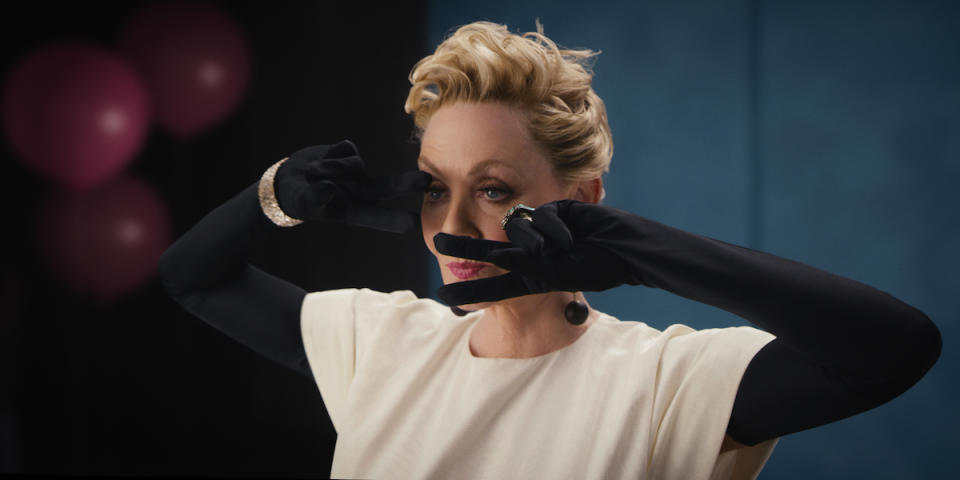
Was she always going to get the job?
Downs: She was always going to get it.
Aniello: I mean, obviously, it’s very one step forward, two steps back in general on this show. But I think one of the things we initially said when we pitched the show is this a story of redemption. So for us, planting in this idea of this white whale for her, and then her ultimately getting it — obviously, at what cost, will be something that’ll be explored. But that was always part of her kind of public redemption.
Considering that Deborah is never satisfied with what she has, where does that leave her at the end of the season?
Statsky: I think that’s exactly the thing we want to explore is for such a driven person like Deborah who always has to keep going and going, when you get this dream, yes, it’s like, “Oh, my gosh, I did it!” But then I think a thing sets in, especially for creatives in this industry, there’s all these things, benchmarks that you’re like, “Well, if I ever hit that, if I ever get that, if I ever get that…” but it doesn’t always come with the satisfaction that you think it will.
And then you have to actually day in and day out, do the job. So I think what we’re excited to explore is, how does she emotionally feel getting this thing? Can she enjoy it? Is the reality of it much different than perhaps she imagined for 40 years that she’s been wanting this?
What are your conversations like with Jean Smart? Does she leave it to you all?
Downs: She really leaves it to us. I mean, she does sometimes have like, she’s like, “You know what would be funny?” Every once in a while, there’ll be a scene that she will think about. But not only does she leave it to us, but she and Hannah do this thing where they want to read it as it comes out. So they read each script in order. It’s as if they’re living it.
I mean, I think it’s an interesting way to work, that it’s as if they’re living through the eyes of the character. But Jean being someone who comes from theater, she’s so committed to the text and she is so deferential to the writing, but she really does leave it to us.
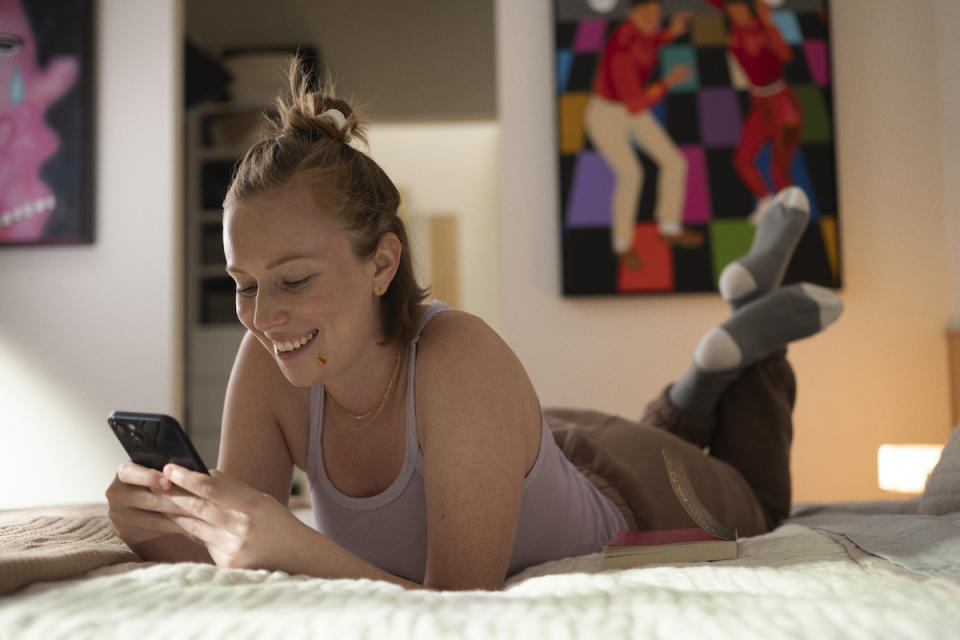
How has Hannah Einbinder worked to deepen the Ava character?
Aniello: It’s been so rewarding to watch Hannah blossom as she has — as the character kind of has too. She really is just such a deeply empathetic, beautiful person, really like Hannah is, and I think she’s lent that to the character of Ava. And I think even in just the way sometimes she looks at Deborah and the way that she looks at the world, it is with this love and curiosity and empathy. But I think the goodness of Hannah at her core, lends that heart to Ava, and it makes sometimes some of her irredeemable qualities more redeemable.
It’s unbelievable how sometimes with so few words, she shows you everything she’s thinking.
I wanted to ask about the Berkeley episode. What made you want to do that episode in these Troubled Times?
Downs: We pitched that episode in the initial pitch. It was something we always knew we wanted to explore, that someone like Deborah, because of the way context shifts and culture changes, comedy doesn’t always age well. So we knew that there must be material for someone like Deborah Vance that didn’t necessarily age well. That was an episode that honestly, I think we were a little bit intimidated to do, because to wrap your arms around all of it and to stick the landing — it’s a very small target. So we considered it a lot, but it felt like the season, especially with the stakes of getting this job as a late night host and being close to it, the potential for some problematic material to resurface was like extra, extra scary for the character. So we decided we had to do it.
Jimmy and Kayla also grew this season. You made Kayla not a joke, and actually quite good at some things. Tell me about their journey in Season 3 — Jimmy, do you want to answer first?
Downs: Well — we tried to do this a little bit in Season 2, but it was great that in Season 3, their story was so enmeshed with Deborah’s quest of getting late night that we were able to explore their relationship and them as characters more and learn more about how Kayla became this way, and how Jimmy became this way. We meet Jimmy’s mom. And it was really, really rewarding to get to have scenes with Meg that weren’t just a comedic duo scene. It felt very good to be able to deepen all the stuff that we’ve done.
In a way, it felt more “Hacks” than it ever has before, because it was a story that was comedic. Obviously, there’s a lot of hard comedy that Meg and I get to do. But we also got to do a little bit more dramatic work, which was really rewarding.
Statsky: It’s some of our favorite things to get to do is when you have two incredibly gifted comedic actors like Paul and Meg. And then you also know that they have so many other gears that they can shift into. And to get to do that, for Paul to show that, for Meg to show that as we deepen their characters and had some more emotional stuff, it’s very rewarding. It very much embodies the tone of the show that we love to do. And so it’s very satisfying to get to do that with all of the characters, like with Paul and Meg.
What’s your writing process? Do you guys have any rituals or things you do when it’s the three of you doing it together?
Statsky: No, we should get a ritual.
Downs: I know. I wish we had a really colorful response.
Aniello: I mean, when we write an episode together, we usually break it up by acts. He’ll take an act, I’ll take an act, she’ll take an act.
Statsky: The three-act structure is helpful with three showrunners.
Downs: But they’re all really, really broken by the time we get there, because we spend so much time outlining and breaking and writing sample dialogue and jokes. All of that is very collaborative, not just with us, but with our writers’ room.
Aniello: But it gives us an opportunity in our actual drafts to try to surprise the other people with new jokes. That’s really the part of it that feels like the most naturally organic, exciting part of it. Because it’s like I know exactly who my audience is: It’s them. And I just want to make them laugh in my draft. It might get rewritten, whatever, whatever. But then I don’t know, being in that mindset kind of really brings the flow on.
And also, we don’t usually omit or cut whole scenes. I know we did with the finale like we talked about with Marcus, but generally, we don’t really do that. Usually, it’s only the very first episode sometimes because you’re really trying to be like, “How do we bring in all this information?” And maybe sometimes in the last episode. But weirdly in the middle, we don’t really omit very much at all.
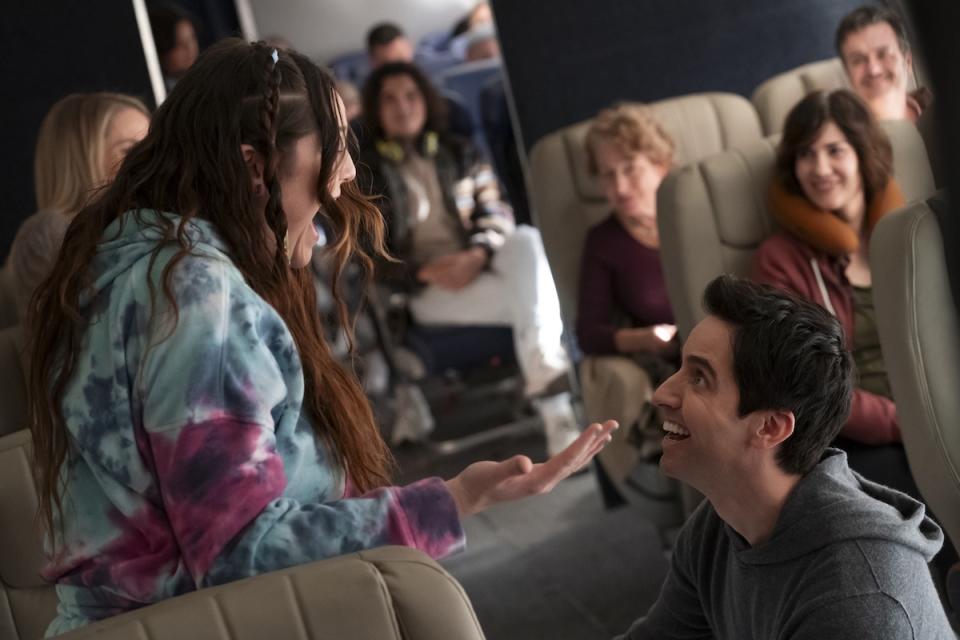
What is your favorite scene or moment or joke from this season?
Downs: I’m biased because I was in it, but the airplane scene —
Aniello: I was going to say the airplane scene.
Downs: The airplane scene is my favorite scene.
Aniello: It’s so fun for us, because it gets to play with this rom-com trope of running onto an airplane, but it’s not romantic. That one is fun because it gets to really, I think, do the tone we love to do, which is really hard funny moments. This woman yelling, “Oh, I didn’t know you were a man.” What was it?
Statsky: “Oh, they’re gay!” “But you said partner.”
Aniello: “But you said partner. Oh, they’re gay.” So funny.
Downs: “Leave us alone!”
Aniello: The “leave us alone!” is so funny. But it also gets to be this real thing where he’s like, “I genuinely now understand your worth, and how good you are, and I want you to be a manager.” And I think it’s like a version where it gets to be really big comedy, but really big drama. Not drama, but real moment.
Downs: Heartfelt.
Aniello: That’s one that I do point to as a mixed tone that we like.
Statsky: I have two answers, a dramatic one and a comedic one. Comedic one is in episode 304 when Jimmy is pitching Ava on all the different open writing assignments. That is one of my all-time favorite scenes we’ve ever done. Paul has some of my favorite line reads in the history of the show on that one: “No spoon.” So comedically, I love that scene. It’s obviously very inside baseball, so holds a place dear in my heart.
And then I think dramatically the scene in “Bulletproof,” the finale, between Deborah and Ava in the living room, is one of my favorite we’ve ever, ever done. I think Hannah blew everyone away on the day, was just so, so incredible. Jean is so incredible. That scene is really special.
Aniello: I’ve never actually had this before, but I’ve never been in the edit and felt so as if I was in the scene. Even editing it, even the rougher cuts, I was just like with bated breath, because it just was so intense — Hannah spilled her entire guts and heart out. She took everything. And then you also see in the end, the way she has to turn and start to realize things about Deborah, realize things about herself, and kind of hits her with the, “You think you’re only lonely when you drink a bottle of Champagne…”
It’s like such a verdict on how she feels about Deborah. And I think Jean does such an amazing job that whole scene of wanting to be open and real and honest, and perhaps even loving back, but she has to put up such a wall. I think Jean does an amazing job of holding the wall when you know the character doesn’t want to. That’s, I think, really subtle, but it’s really powerful. And it gave Hannah so much to play off of. I mean, two masters at work, honestly.
Downs: They’re so good in the scene that the plane scene was after it, and it was hard to laugh. We had to move it. We put it before that scene, because once you’re there, you’re on a frequency and there’s so much momentum to the end that we thought, “OK, we need to truncate what’s happening at the end.” So that was an example of rewriting it in the edit.
Statsky: Yeah, we’ve never done that before, had to fully — it was the biggest reorder we’ve ever done. But it was like Paul and Meg were too funny. Jean and Hannah were too dramatically compelling, and honestly, heartbreaking that yeah — you couldn’t laugh. It was just too hard comedy after it. So we fully flipped it, put the plane scene first. The Jimmy/Ava scene, which was so lovely within Jimmy’s new office — we had to change the ending of that to make it work.
It was the most reordering and restructuring you’ve ever done because of the four very powerful in different ways performances in that episode.
When was the Jimmy/Ava scene going to go?
Downs: Right before the plane. So she was going to say, “Hey, great job. She wouldn’t have gotten late night without you.” And Jimmy says, “Well, I didn’t do it alone.” And is thinking about the impact Kayla had on this whole story for the season — and then goes to the plane.
Then, at the end of that scene, when he gets her to say yes, she’ll stay and everyone claps because they got married or they’re engaged, when they’re about to leave, the attendant says, “We’ve shut the doors. We’re pulling back.” So they were going to be in Greece! He has no suitcase. His car is on the loading dock. But that changed too.
I was concerned that they weren’t going to make it off the plane.
Aniello: You were right.
This interview has been edited and condensed.
Best of Variety
Sign up for Variety’s Newsletter. For the latest news, follow us on Facebook, Twitter, and Instagram.


